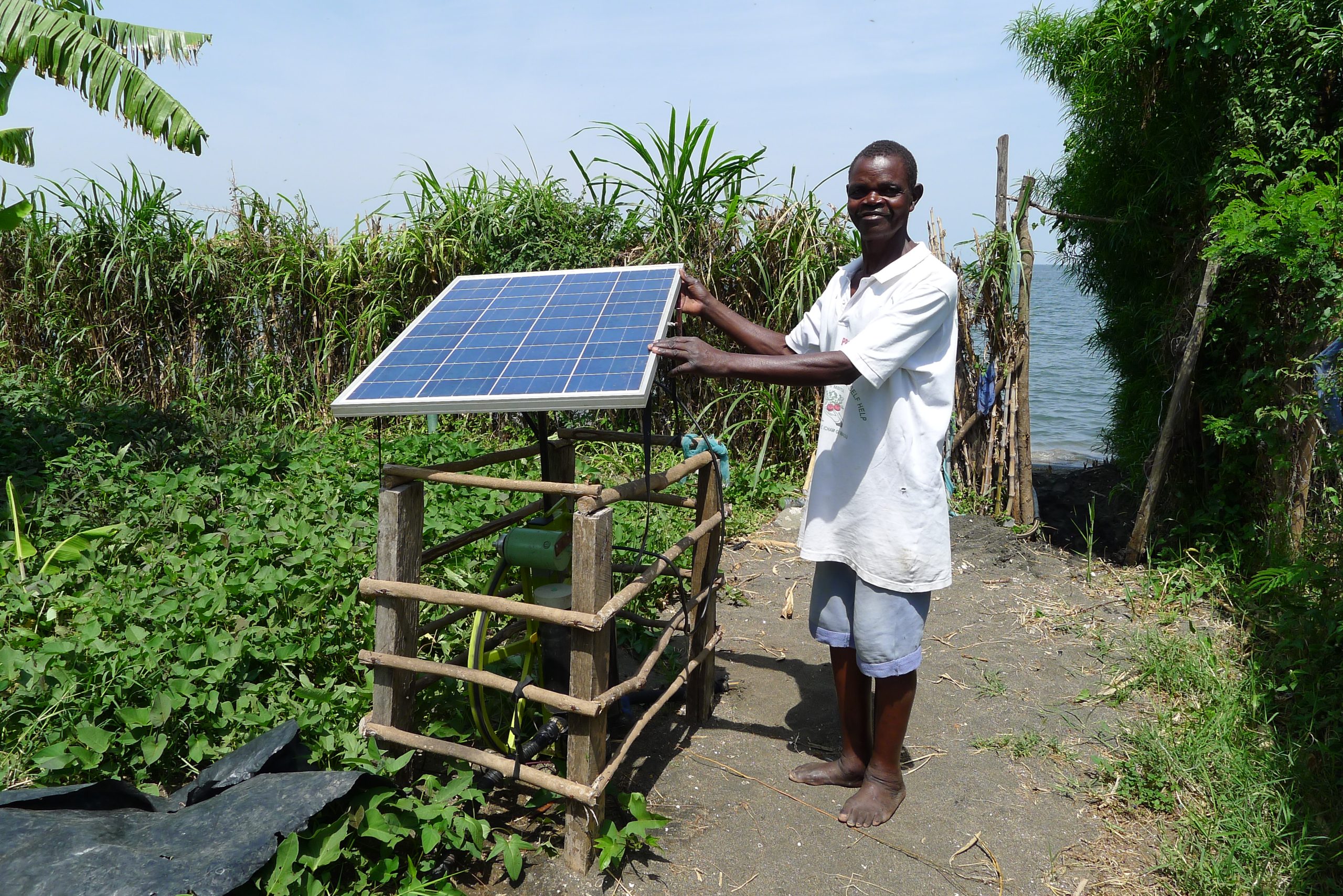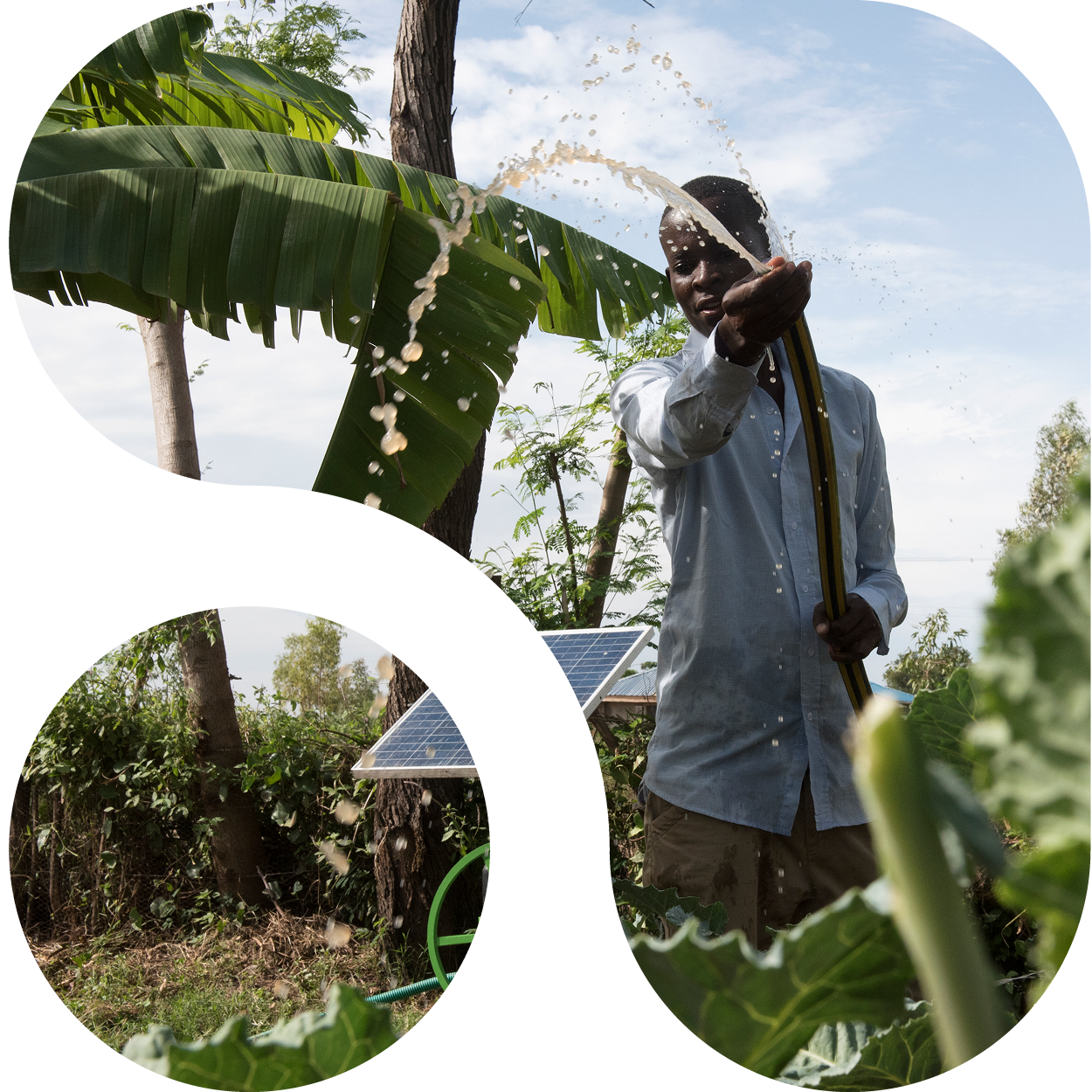- Projects & Programmes
- Solar-Powered Irrigation in Kenya: Futurepump
Our Portfolio
Solar-Powered Irrigation in Kenya: Futurepump

Background
As in many developing countries, agriculture is the lifeblood of Kenya’s economy, directly responsible for over a quarter of GDP and a fifth of formal employment (and over 70% of informal jobs in rural areas).
A key element to improve agricultural production is irrigation. However, only 4% of irrigable land is currently under irrigation. To advance productivity and wealth generation in the agricultural sector, irrigation will need to expand to cover the full potential of irrigable land, a trend already well underway. Currently, diesel engine irrigation pumps are powering this expansion, a reality that will – if unchecked – lead to considerable growth in CO2 and particulate matter pollution. Investment in alternative technologies is lacking due to gaps in finance, understanding and know-how among primary segments.
REEEP estimates that broad expansion of a market for a renewable alternative could result in nearly 3 million tonnes CO2 of emissions avoidance per year by 2030.
Photo (above): A Sunflower solar powered irrigation pump (Credit: Futurepump)
Purpose
Now receiving its second round of financing from REEEP, Futurepump has developed a new model to allow smallholder farmers in Kenya to adopt sustainable irrigation solutions with a proprietary solar powered irrigation pump, combined with an end-user finance programme that allows for flexible payments at a time when the farmer is gaining the economic benefits from irrigating their lands.
Kenya’s solar potential makes solar powered irrigation pumps, combined with low-pressure drip systems, an attractive technology that can drastically improve crop yields, productivity and farmer income while avoiding massive amounts of GHG Emissions.
Main Activities
With this innovative model, Futurepump is able to reach even very low income farmers with less than one acre of land – which constitute the majority of the agricultural sector in Kenya. By addressing a key barrier in up-front cost, and by targeting the market segment accounting for the majority of production (yet is most difficult to reach via conventional sales models), FuturePump’s model holds great potential for transforming the irrigation sector in the country from a product to a service model (affordable irrigation water) with flexible payment.


Impact
Solar-Powered Irrigation in Kenya: Potential Market Impact

Direct Impact for Farmers
- Cost savings in fuel and labour
- Increase in crop yield
- A third growing season
Location
Stage of project
Implementing Agency
REEEP grant funded by
OPEC Fund for International Development (OFID)The Business Case for Solar Irrigation in Kenya

